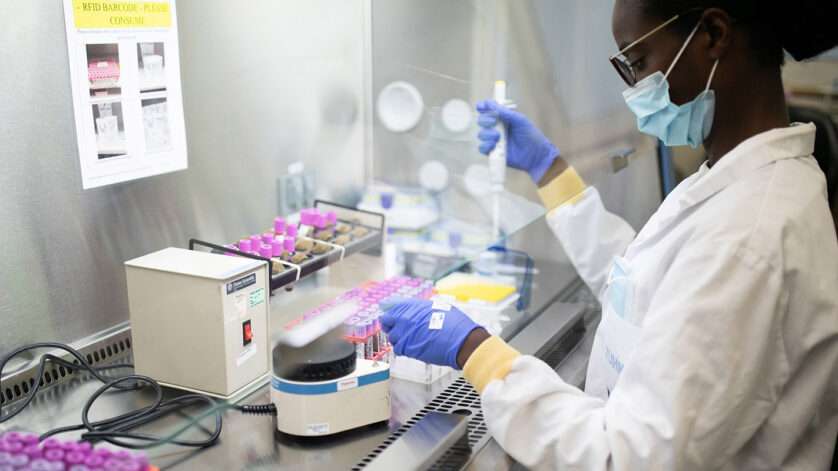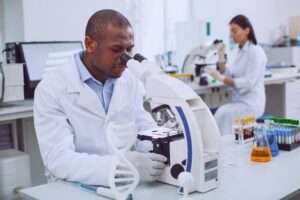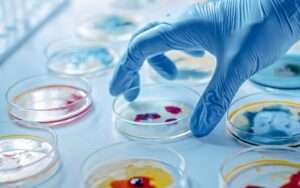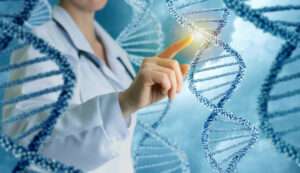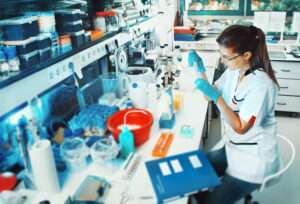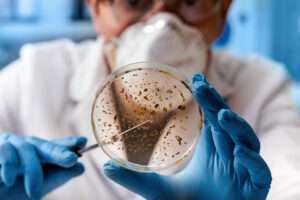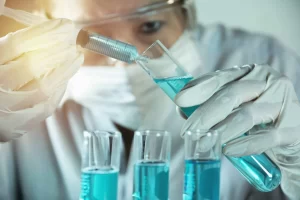Clinical Biochemist Job Description
If you are considering a career as a clinical biochemist, there are a few things that you should know about the position. These include the Responsibilities and Qualifications for the position. You will also need to be familiar with the salary of this position. These three areas are important and will help you make the right decision.
Also Read – Medical Physicist Job Description
Qualifications
A clinical biochemist is a health care professional who uses biochemistry to diagnose and treat diseases. This role is typically based in a hospital clinical biochemistry laboratory, but more, this profession is expanding outside of the laboratory, supporting investigations at the point of care. Clinical biochemists often work alongside biomedical scientists and pathologists to assist with diagnostic procedures.
Most clinical biochemists are employed by hospital departments, but there are opportunities to work in industrial organisations, such as pharmaceuticals and diagnostics. In either case, clinical biochemists must keep up with current research and develop their laboratory and management skills. In addition, they must also regularly undertake continuing professional development to remain registered with the HCPC.
Other job skills required include being patient, thorough, and diligent. These qualities are especially important in this industry, where a biochemist’s job is based on precision. These qualities will enable a biochemist to keep their labs clean and organized and help them use their time efficiently.
As a clinical biochemist, you will be responsible for analyzing the chemical composition of human fluids and tissues. This may include blood, urine, saliva, and sweat samples. Clinical biochemists often use complex laboratory instruments to analyze the contents of samples. They also document their findings and report them to physicians so they can prescribe the appropriate medication.
Clinical biochemists ensure high quality biochemical test results, which are crucial for the diagnosis and treatment of a patient. They also implement and develop quality management systems in their laboratories. In addition, they also perform interpretation of patient laboratory tests and develop interpretive guides for other health care professionals. They also select and validate reference intervals for their tests.
Biochemists study the chemical processes inside living organisms, including the chemistry of disease, heredity, and cell development. Some work on basic research, while others focus on medical treatments. For example, biochemists may examine hormones in the body and use their findings to create synthetic hormones.
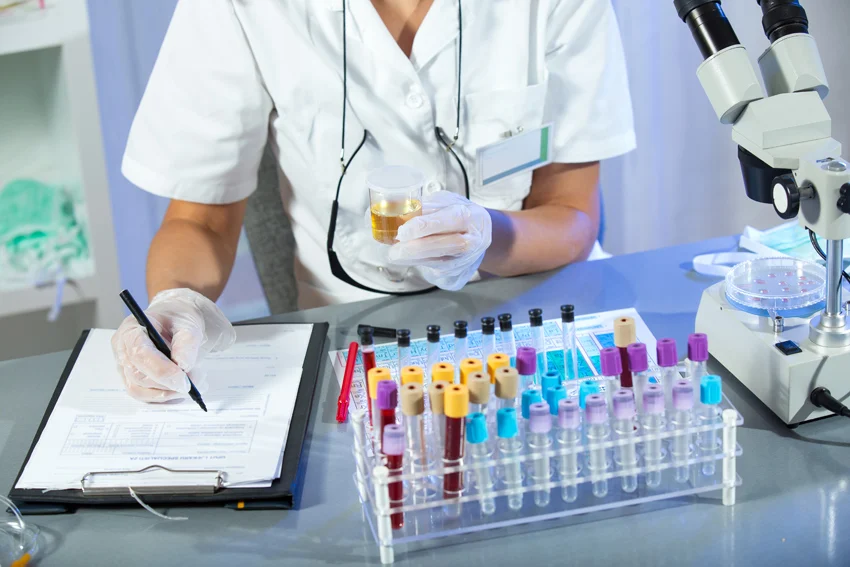
Also Read – Microbiologist Job Description
Responsibilities
The job of Clinical Biochemists involves analyzing patient samples and interpreting the results to determine the cause of illness or to determine the best treatment option. They also write reports based on their findings. They may also develop experiments and conduct periodic tests to test their theories. They may manage a laboratory team.
As a biochemist, you must be meticulous and have good organizational skills. This skill will allow you to manage time efficiently, keep the lab clean, and find resources quickly. In addition, it is important to have strong communication skills. This will enable you to communicate with people and share information with colleagues, which will minimize errors in the laboratory.
Biochemists receive regular on-the-job training. They must possess analytical skills and have a curious mind. They should also have good computer skills and have knowledge of statistics. They may also progress to a supervisory role. Eventually, they may even choose to move out of the lab science altogether. However, they should always be prepared for a wide variety of job duties. If they are well-trained, they may be able to lead a team of professionals, perform research, and analyze data.
Biochemists will also spend part of their time studying to obtain professional qualifications. Generally, clinical biochemists will study for a career-focused MSc or a Fellowship of the Royal College of Pathologists (FRCPath). The Association of Clinical Biochemists (ACB) also holds staged tutorials and scientific meetings. They will also normally attend a two-day Annual Conference or National training course focused on management issues.
Clinical biochemists often work in hospital laboratories and will interpret samples to provide advice to doctors and patients. Their aim is to prevent disease and keep patients healthy. They are paid based on the Agenda for Change pay scale. Trainee clinical scientists typically earn PS32306 on average, with the possibility of progressing to a Band 7 salary in a few years.
In order to be considered for a clinical biochemist job, candidates must hold a postgraduate qualification approved by the Health Professions Council. In addition to a Master’s degree, biochemists may want to consider pursuing a PhD in a field related to their specialty. A PhD in biochemistry may lead to career opportunities in academia and in non-clinical fields.
Applicants should have at least a Bachelor’s degree in biochemistry or a related field. Those with a PhD in biochemistry or a related field are preferred. After completing the program, graduates may choose to work in hospitals and other healthcare facilities, where they will gain experience and develop their postgraduate qualifications.
The job of Clinical Biochemists has a long-standing place in the Irish healthcare system. In the wake of the Fitzgerald report, the post of Clinical Biochemists has become more important in the delivery of diagnostic endocrinology and clinical biochemistry services. They play a critical role in healthcare through their clinical, scientific, and management responsibilities.
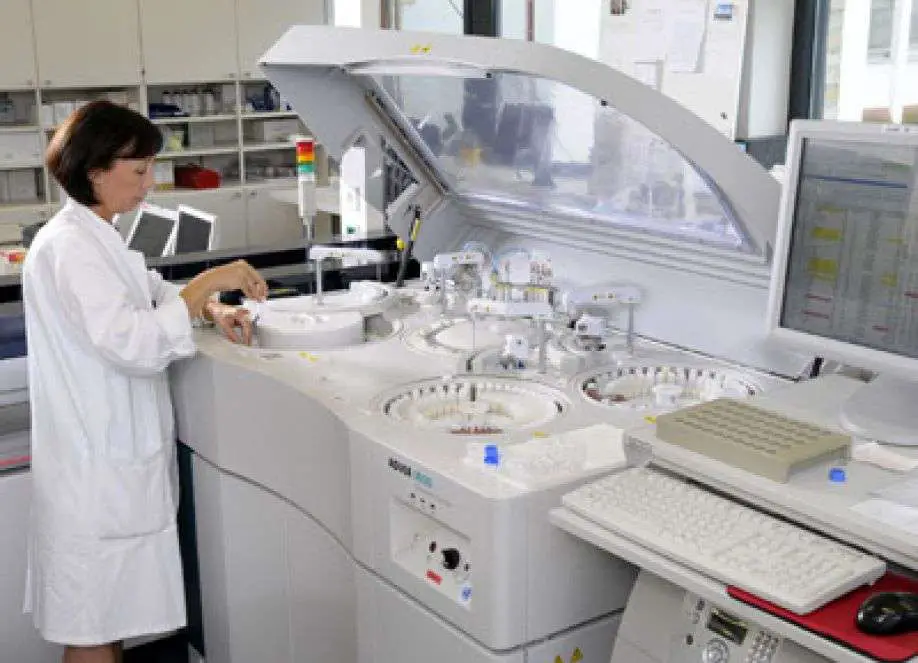
Also Read – Pharmacologist Job Description
Salary
A career as a clinical biochemist offers a wide variety of career opportunities. This career path combines technical expertise with creativity and self-motivation. It may also involve working in a laboratory or clinical equipment manufacturing company. A biochemist may also take on a management role or work in a marketing or product development role.
A salary for a Clinical Biochemist can range from $78,000 to $148,000 per year. The average salary for this job ranges between $51,500 (25th percentile) and $96,500 (75th percentile). In the United States, the top ten percent of earners make more than $127,000 per year. However, pay can vary based on experience, location, and number of years of experience.
While most clinical biochemists work in a hospital, there are also opportunities for those who are working in biotechnology, pharmaceuticals, and diagnostics companies. To advance their careers, clinical biochemists must stay current with ongoing research techniques. They also must continually develop their laboratory and management skills. They are required to continue their registration with the Health and Care Professions Council.
The salary of a clinical biochemist varies by experience. Trainees typically start at PS25,000 and increase to PS30,000 once they are registered. However, more experienced biochemists can earn PS50,000 or more. Most clinical biochemists work full-time, but may also be required to work nights, weekends, or on a shift schedule.
Salary for clinical biochemists varies by location. In New York-Manhattan, the average salary is $114,062 and includes a bonus of $2,726. In Boston, the average salary is $100,106, which is nearly 10% higher than the national average. According to the Bureau of Labor Statistics, the salary for clinical biochemists may grow by 5% between 2020 and 2030. However, this growth rate is slower than the national average. In 2020, there will be 34,800 positions in the field.
Clinical biochemists study samples of blood and other tissues from patients. Their work focuses on the diagnosis of illnesses and the treatment of those illnesses. Clinical biochemists often work as part of a medical team at hospitals. They may work full-time or on-call, and they also often do some research.
After completing a training course, trainee biochemists may begin practicing as full-time clinical biochemists. They may choose to pursue a specialisation in either molecular biology or endocrinology. In the long term, this career path can lead to becoming a consultant clinical biochemist.
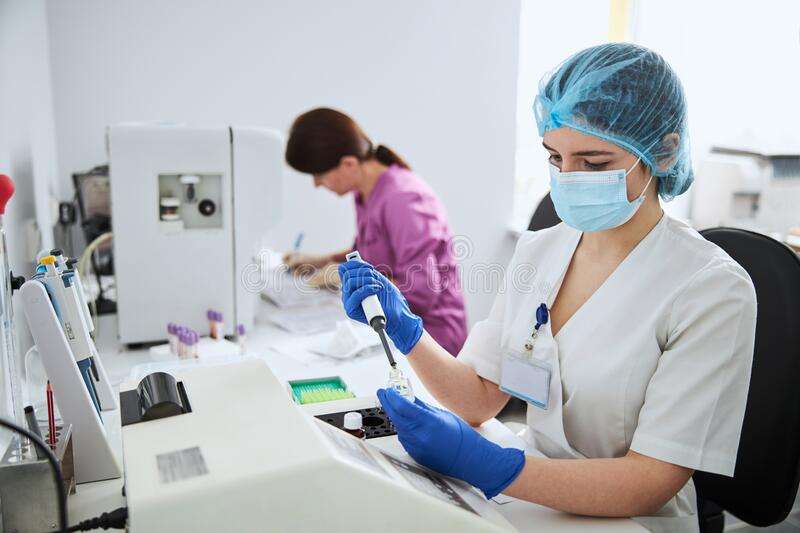
Also Read – Medical Laboratory Technician Job Description
Useful Links:-
Dubai Job Vacancies, Engineering Job Vacancies in Dubai, Top Dubai Jobs, Multiple Dubai Job Vacancies, Dubai Jobs, Jobs in Dubai, Dubai Job vacancies, Dubai Vacancies, Abu Dhabi Job Vacancies, Engineering Job Vacancies in Abu Dhabi, Top Abu Dhabi Jobs, Multiple Abu Dhabi Job Vacancies, Abu Dhabi Jobs, Jobs in Abu Dhabi, Abu Dhabi Job vacancies, UAE Vacancies, UAE Job Vacancies, Engineering Job Vacancies in UAE, Top UAE Jobs, Multiple UAE Job Vacancies, UAE Jobs, Jobs in UAE, UAE Job vacancies, UAE Vacancies
Click Here to find the latest Job Vacancies

